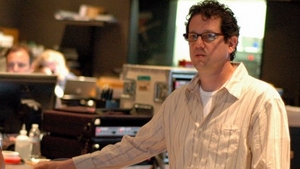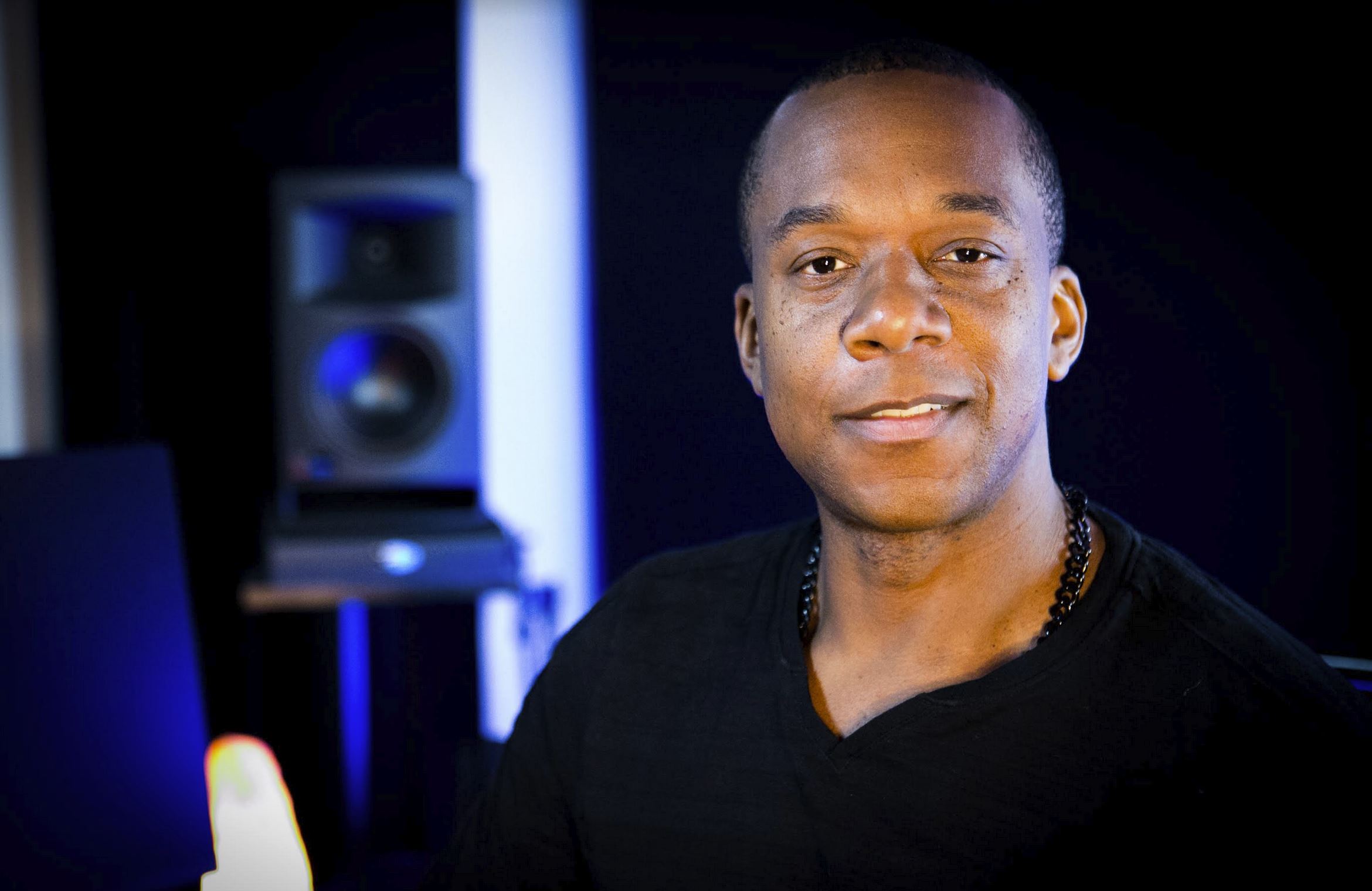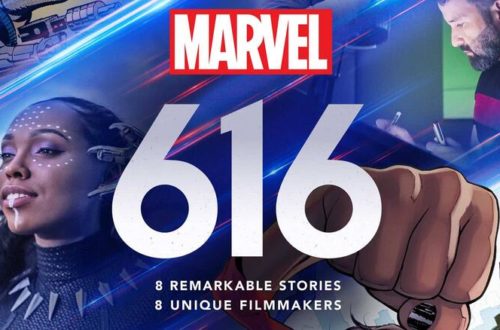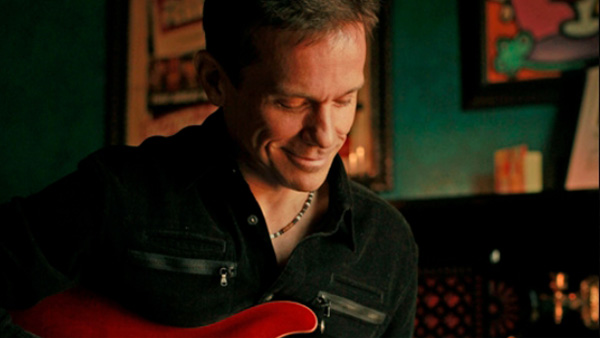 This week, Oscar-winning film composer Michael Giacchino (Star Trek, Super 8, Up, The Incredibles) will hold an exclusive 3 night engagement with the Dallas Symphony Orchestra. The retrospective concert experience will feature a set list of Giacchino’s finest works with an added bonus; Michael himself will be conducting his well-loved themes at the Meyerson Symphony Center from May 18th – 20th. In a very fun and informative interview from his office at Pixar, Go,See,Talk got to speak with Michael to discuss his influences, his passion, his process and how he weaves his musical magic.
This week, Oscar-winning film composer Michael Giacchino (Star Trek, Super 8, Up, The Incredibles) will hold an exclusive 3 night engagement with the Dallas Symphony Orchestra. The retrospective concert experience will feature a set list of Giacchino’s finest works with an added bonus; Michael himself will be conducting his well-loved themes at the Meyerson Symphony Center from May 18th – 20th. In a very fun and informative interview from his office at Pixar, Go,See,Talk got to speak with Michael to discuss his influences, his passion, his process and how he weaves his musical magic.
20 minutes is nowhere near long enough to spend with this gifted musician (honestly I have pages of things I wanted to ask him), so before our on-camera session with him later this week at the DSO, enjoy our in-depth interview with Oscar and Grammy-winning film composer/filmmaker at heart, Michael Giacchino…
GST: Can we start by talking about how you got started in your musical career and what influenced you early on?
MG: I think it was my Dad’s record collection honestly. The stuff that he would listen to I absolutely loved and it wasn’t always film music. It was Benny Goodman, and Louis Prima and I remember he had an old Beach Boys album. But he also had these other weird albums like these Scottish Marches and John Philip Sousa. I remember there was this other great Peter Nero album so he had this very eclectic collection of records. Another one I remember, which he had gotten when he was in the Army, was the Peter Gun soundtrack. It had all the music that Henry Mancini wrote for the show and I loved that album so at a really young age , and I’m talking 7 years old, I was listening to all those old records and loving basically what an orchestra or a big band, or any kind of musical ensemble could offer.
I loved that so I listened to, almost exclusively, instrumental music and then of course I started getting into film scores after seeing things on TV like 2001, and a lot of films that had been out long before I was born and started getting interested in that. Then of course Star Wars happened, I went to the theater and saw that was it. I said “I want to make movies, that’s what I want to do!”. Then I remember going to my Dad and going “I would love to make movies, how do you do that?”. My dad was supportive and said “well I don’t know but I have this movie camera that we haven’t used in years if you want to use that, you can try that”. It was an old Keystone 8mm camera. He bought me film and I started making films and doing a lot of stop-motion animation and from that point on I just didn’t stop making movies.
It wasn’t that the music was that thing that was like the focus at that the time, music was just something that I really loved. I took piano lessons and I was doing all the normal things you do as a kid but film making was the passion for me and I just kept making movies and a big part of making those movies was selection music to put in them. In the early days 8mm films were just silent so I had to have a tape recorder that I would try and time out exactly what was going on with the film so I would, very crudely, edit together music soundtracks based on all the records I had and with a stop watch start timing my movies to see when certain things would happen. When does the T-Rex attack the astronaut ? Or, when do the jawas toss the tank over the side of the table? Things like that, so I unknowingly started learning about film scoring by doing that. That’s where it all began really.
GST: So then it must have been very nostalgic when you were asked to score to Super 8 right?
MG: Oh definitely, when I met JJ [Abrams] it was a very interesting experience for me because the more I talked to him that first day that I met him, the more I realized how our backgrounds were very similar
in what it was that we loved to do. We both grew up making 8MM movies, Super 8, 16MM movies and as we got older we had a similar path just making films so there’s this love of getting together with your friends and making something that we both shared.
One of the reasons we get along very well is because we had that shared experiences growing up. So it was incredibly nostalgic for me to work on that film coupled with the fact that Steven Spielberg was producing it. Both JJ and I regularly would go “can you believe that we’re working on this, that we get do something with him??” I mean this was the guy we grew up idolizing. It was his films that we looked at as film school at an early age when there was no real place to learn about making movies for me especially growing up on the East Coast other than very spare Super 8 magazines you had to hunt down.
Watching those movies was where I learned. Actually I used to sneak a tape recorder into the movie theater and record the movies. Say I went to see Raiders of the Lost Ark, I would record the entire thing on a cassette tape and then spent weeks, months, years listening back to it over and over again at night time when I would go to bed. That was the ritual at night time, “Ok, what movie am I going to listen to?” and I recorded Star Wars, Empire [Strikes Back], ET, Poltergeist, all of those movies I would listen to over and over just while I was going to sleep. I also feel I learned a lot about film making just from listening to the audio from those films, seeing how the sound effects, music and dialog all worked together. So it was incredibly nostalgic and inspiring to be part of that film which was sort of semi-auto biographical for a lot of the people that worked on it.
GST: After film school you went to Juilliard, which kind of speaks for itself, but when did the break occur from wanting to make the movies to wanting to focus more on your music?
MG: I attended Juilliard for a while but I think it was about the time I left film school that I started being more serious about music. I started taking more serious lessons and started reading more about orchestration and learning about theory, all the things I didn’t necessarily learn from piano lessons, and I started getting into different instruments and learning everything I could about the orchestra.
I even started trying to write orchestral music about the time I left college by handwriting all the parts, not that it was going to be played by anyone, just to see if I could do it. So it was right after college I got more serious about music and I think in making these movies over the years, one of my favorite parts of working on them was dealing with what kind of music was going to go in them. So it felt very natural for me to just sit down and write the music that I wanted to be part of whatever it was that I was working on.
Then I got into producing video games and that’s really when the need for music was there. I was a guy who could write music so they would ask if I would you write music for them and I started doing that. Once that became a regular thing for me I just quit everything else and just started doing music full time. So it wasn’t really any crystallizing day when I said I want to do just this because I feel like I still like all aspects of film making and I just happen to be writing music for films but I still enjoy it all. Filmmaking is one of the great arts because it involves all the other arts, you know, it’s not just one thing, it involves so many different crafts that need to work together and that’s very inspiring and interesting to me.
GST: You’ve said that J.J. Abrams is a closet musician so you can speak on the same terms with him. But how do you approach working with someone who isn’t very musical? Is it challenging?
MG: No, not at all. I think that the thing I try to keep the conversations centered on is the storytelling. We rarely talk music, we just talk about the story and the emotions that we need to convey or we’re shooting for. Rarely do we ever sit down and talk about French horns or orchestral make up. It’s always about storytelling and emotions and character. That’s why I like working with the certain directors that I work with on a regular basis. It’s because our conversations are always about the story, they’re never about “how cool would it be if we just had nothing but violins?” or something. A decision like that needs to be made out of storytelling, there needs to be a reason to do that. You shouldn’t do that just because and I like working with people who don’t do things just because, they do things for a reason. So I tend work in a very similar fashion across the board with them, talking about it in terms of filmmaking rather than just music.
GST: A lot of times, music can be a crutch for bad film making, but if the story is there, how do you decide to let a movie/scene play out by itself versus forcing some music on it? Specifically the scene in Up where you wrote the theme “Married Life”. People give Pete Docter flack for making grown men across the country cry in the opening of the film, but really you’re just as much at fault.
MG: *Laughs*
GST: The scene works on its own, but how do you find the balance between what’s there, and what you want to add to the film with your music?
MG: For me, it’s simply to write what I’m feeling. For example, in that particular scene, I just remember watching that for the first time when it was just storyboards and I was feeling very emotional about it because at some point during that scene you realize “wow, this is not about this movie, this is about us” and everything in this we’re all going to go through in one regard on another. We’re all going to deal with these things that these characters are doing. You’re going to lose someone that you love, that’s going to happen. It got me thinking about a lot of things outside of just that film itself.
I think a lot of the music in there was a reflection of those feelings.
So when a film or TV show or something I’m working on affects me in that way then that’s when I feel that I love my job the most, I can give you back what I’m feeling.
If I have to manufacture something because I’m feeling nothing, that’s a very difficult thing to do, and I tend to shy away from any project where I get the sense that I’m not gonna feel anything working on this. I tend to only choose to work with people that I can depend on there being something for me to feel. That’s really the only way for me to write music or create something – if there’s some passion behind it.
GST: Let’s talk about what inspires you. In an interview I heard you talk about your first orchestral video game project LOST WORLD and how you were inspired just by the concept artwork.
MG: Yeah, absolutely. Matt Hall, who lives in Texas now and will be coming to the concerts, he did all of that concept art, and I remember seeing this artwork and it was amazing how he brought these dinosaurs to life in a way which I hadn’t seen before. He made them characters and created stories within his images, and it was so inspiring. I had them up on the walls when I was working, so when I needed to work on a specific area of the game, like the T-Rex level, I rarely went to the game itself for that inspiration; I always went to Matt’s artwork. He also did the same thing on Medal of Honor. So much of that inspiration came out of what he was providing.
GST: Depending on the kind of film and the filmmaker behind it, it’s sometimes easier to relate to a human element. As you worked on Ratatouille do you think there’s more of a need for music in something animated or a video game versus something live-action where you can relate to human emotion on screen?
MG: I like to think they’re all very similar because to me there’s nothing anymore real about a character like Spock or a rat that can cook, or the guy who flies around Manhattan in a red cape or Mr. Incredible. They’re all characters, they’re all parts of the story we’re telling and I try to treat the animated ones just as I would treat the human ones. Just because it’s a rat, I don’t want to demean what he’s thinking or feeling I want to treat him as I would treat Kirk or the kids from Super 8. I try to look at them all as real people as opposed to just a thing and if you’re looking at them that way and you’re looking for what drives them, what they’re thinking and feeling, that’s how you get the audience on board with what you need to do story-wise.
GST: Do you ever find at times that you put too much into something? Or how do you decide whether to create a balnket theme versus creating a theme for each and every character?
MG: It depends on the film and whether it supports that or not. I remember I used to write tons of themes for the Medal of Honor games, every area, every gun, every event had its own theme. But then again in Star Trek you have Kirk’s theme, Spock’s theme and Niro’s theme. Kirk shares his theme with the Enterprise, it’s kind of a marriage between the two. You kind of identify the main culprits in your story and you go with that. But the story will always dictate what you need to do. Now sometimes too much can mean orchestrationally too much. One of the the final things I do before I finalize a queue is un-orchestrate; pull out whatever I don’t feel I need.
There’s all kinds of levels of putting in too much. It could be tied to themes, it can be simple simple orchestration. Pulling out as much as you can before it falls apart is one of the most important parts of the whole process. Leave it standing with only what it needs. Sometimes there can bee too many themes, sometimes there can be too little, but you hope the the story guides you in the right way to do the right thing.
GST: And also I would imagine that placement is important, not just quantity or content.
MG: Absolutely. You try not to do wall to wall music when possible as it becomes wallpaper and the audience gets numb to it. You need breathing room in between things for the audience to feel it when it comes in. Also picking the right moment for it to come in is crucial too. You come in a few seconds later and it might ruin what an audience’s reaction could be, or if you come in a few seconds early you might ruin what a surprise might be.
So it’s about finding that perfect spot. In the end it’s always a guess, you’re always just doing what you think and throwing out your best guess and hoping that it works.
GST: On the Special Features for Star Trek, talked about when you tried to use the original theme from the show. You said that using early on in the film felt forced and so it was brilliant when you said that “they needed to earn it“.
MG: Yes! We did try to use it and it just felt false. We said, “this is not Star Trek, they need to earn that theme” because it wasn’t until they all together on the Enterprise, and rightly sanctioned to be there, that you felt like “OK now we can give the audience that theme, now it feels like it’s Star Trek”. But before that these guys were not members of a team. The film was about them coming together, the film was about Spock and Kirk becoming as friends and seeing where that’s were going to go in the future. Star Trek isn’t Star Trek until they’re there. Now having said that I still don’t think that’s the kind of theme that you would just shove in every time you wanted to use it, you have to be judicious with it and use it when it makes sense. Again, story will guide you in what you need to do.
GST: Before our time is up, can you tell us about your upcoming concert with the Dallas Symphony Orchestra? You don’t usually conduct your own music, is that right?
I’ve been conducting more and more over the years and am starting to get more comfortable conducting full-length things and doing that. So I think I’m close to the point to the point where I’ll go “OK I’ll do the whole thing”. It’s all about getting the confidence to do it. It’s one thing when you’re with all your players that you know in the studio setting, in an orchestra it’s different. A lot of times I choose not to conduct the film scores because I want to be with the director in the booth. I want to talk with him as we hear the music. We can talk and figure out what’s working, what’s not working and I can change it on the spot that way. Whereas if I’m out there on the stand all the time, I gotta come back in, go back out, come back in, it just wastes a lot of time. But it’s fun and I’m looking forward to it and I do enjoy doing it so this concert is something I have been looking forward to.
Acclaimed film composer Michael Giacchino will be playing an exclusive 3 night concert with the world renowned Dallas Symphony Orchestra from May 18th- 20th. Tickets should still be available so please, click this link to the Dallas Symphony website for information.
If you’re a film fan and, moreover, you love film music, we implore you to attend one of Michael Giacchino’s performances. See you at the show but if you can’t make it, look for our recap!! Also check out our story on Michael that we wrote for the Dallas Film Society website.



